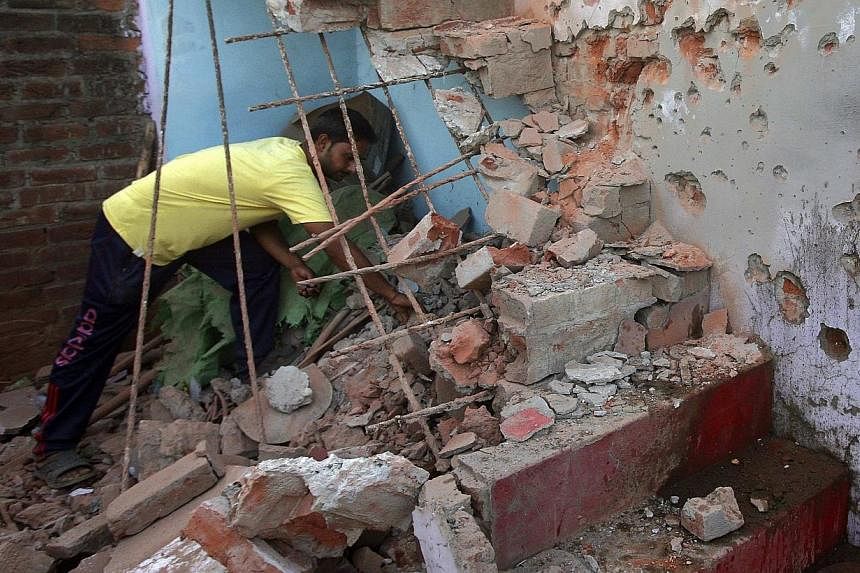NEW DELHI (Reuters) - India warned Pakistan it would pay an "unaffordable price" if it persists with shelling and machine-gun fire across a disputed border in the Kashmir region, raising the stakes in the rivals' worst fighting in more than a decade.
A total of nine Pakistani and eight Indian civilians have been killed since fighting erupted more than week ago along a 200km stretch of border in the disputed, mostly Muslim region of Kashmir. Both of the nuclear-armed countries claim all of Kashmir's Himalayan mountains and fertile valleys, a major focus of tension in South Asia.
India's Defence Minister Arun Jaitley accused Pakistan of making unprovoked attacks on Indian-controlled Kashmir and threatened heavy retaliation.
"If Pakistan persists with this adventurism then our forces will continue to fight," Arun Jaitley told reporters at a news conference in New Delhi."The cost of this adventurism will be unaffordable." He did not give more details.
This is the first crisis with Pakistan that India's Prime Minister Narendra Modi has dealt with since winning an election four months ago. It comes after weeks of destabilising anti-government protests in Pakistan.
While exchanges of sporadic fire are common along the de facto border dividing the region, the extent and intensity of the exchanges and the number of civilian deaths is unusual.
India and Pakistan have fought two wars over Kashmir since they became independent in 1947. Each side accuses the other of targeting civilians and unprovoked violations of a border truce that has largely held since 2003.
Jaitley appeared to rule out initiating talks to end the heavy mortar fire that is falling on villages and border posts on both sides.
"How can we have talks when firing is on?" he said.
Indian forces retaliated to gunfire and mortar bombs on about 50 border security posts overnight, a senior Indian border security official said. There was intermittent fire on Thursday.
India has for years accused Muslim Pakistan of backing separatist Muslim rebels in India's part of Kashmir. Pakistan denies arming the militants saying it only gives them diplomatic support in the face of human rights abuses by Indian forces.
Despite a reputation as a hawkish nationalist, Modi on Wednesday hinted that an end to the fighting could be in sight.
"Everything will be fine soon," Modi told reporters after a meeting with the country's air chief. The terse sentence is all Modi has said publicly about the fighting.
Almost 20,000 Indian civilians have fled from their homes in the lowlands around India's Jammu region to escape the fighting, taking refuge in schools and relief camps.
India held a meeting on Wednesday of its top security officials to discuss how to handle the conflict. Pakistani Prime Minister Nawaz Sharif has called a similar meeting on Friday.
Despite Modi's suggestion of a quick resolution, there have been few moves to lower the tension.
Since the fighting broke out four days ago there has only been one telephone call between the two militaries. The usual way to stop clashes is to call a meeting of senior officials at the border, but no such meeting has been held this time.
One senior Indian army officer in Kashmir said the violence suited both sides with Pakistan's army taking a more assertive role in politics and India's Modi promising a more muscular foreign policy. The officer declined to be identified because he is not authorised to speak to the media.
"You need a strict discipline to be imposed by both sides and that only happens if there is a commitment from the leadership to do that," said Talat Masood, a retired lieutenant general in the Pakistan army. "It seems right now there is a lack of commitment on both sides to rein it."

